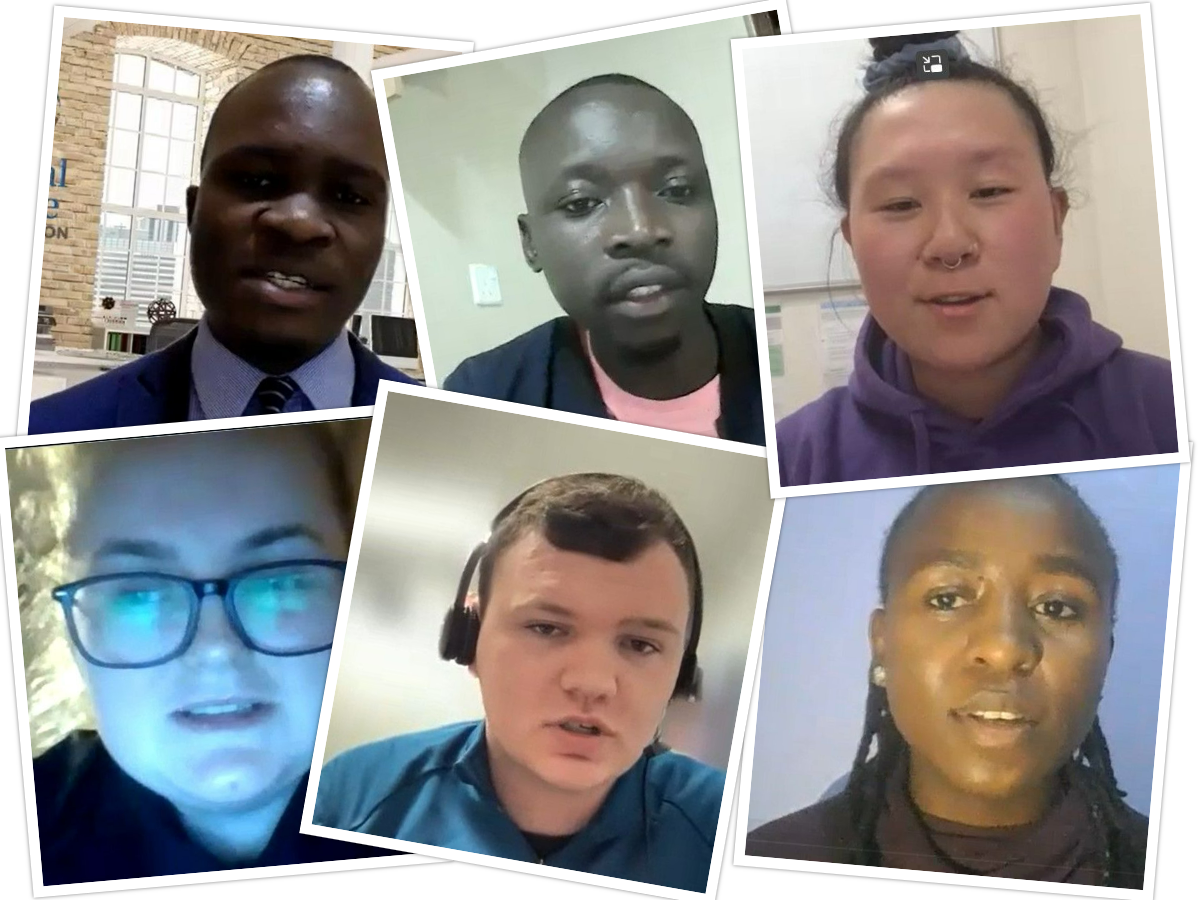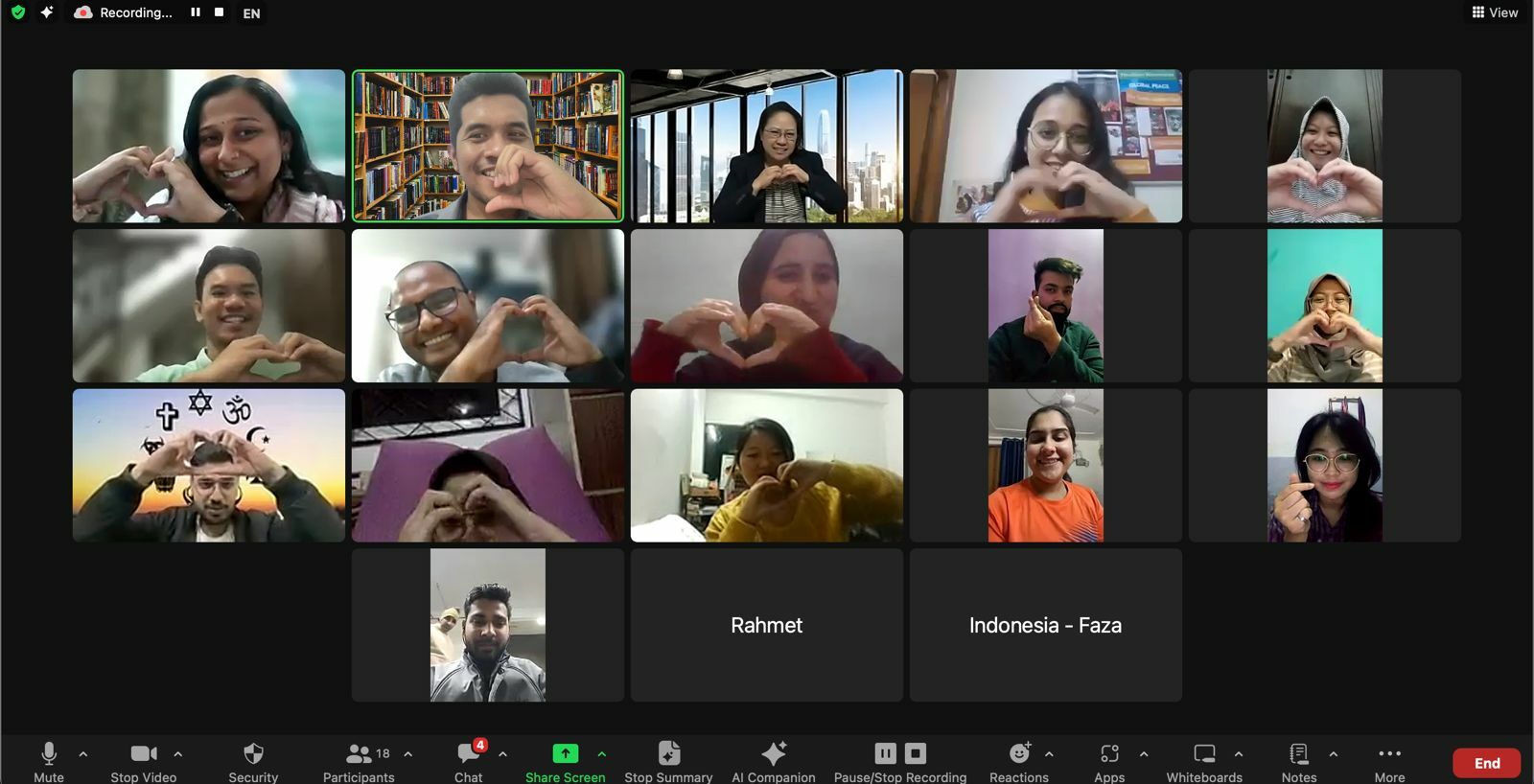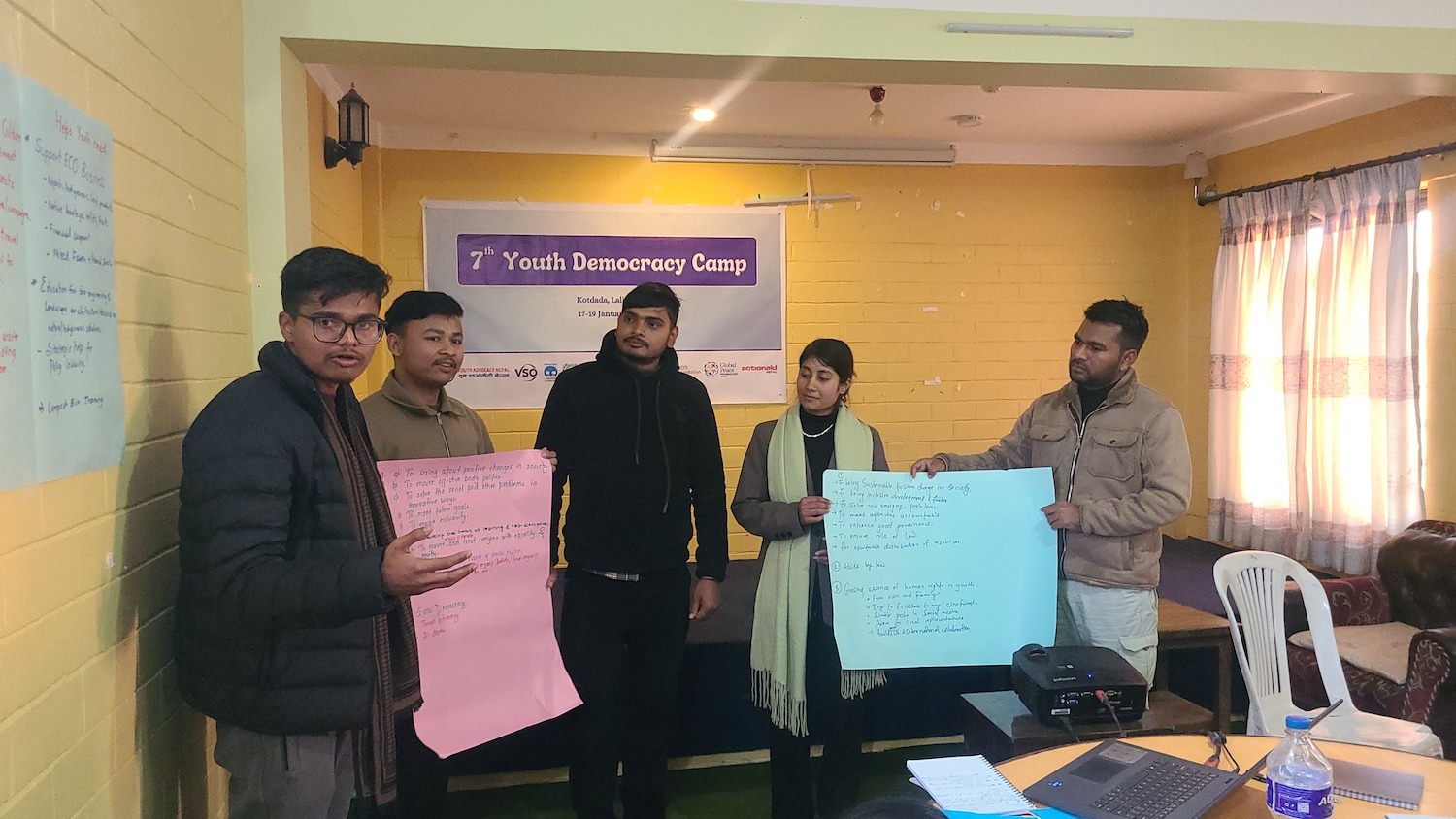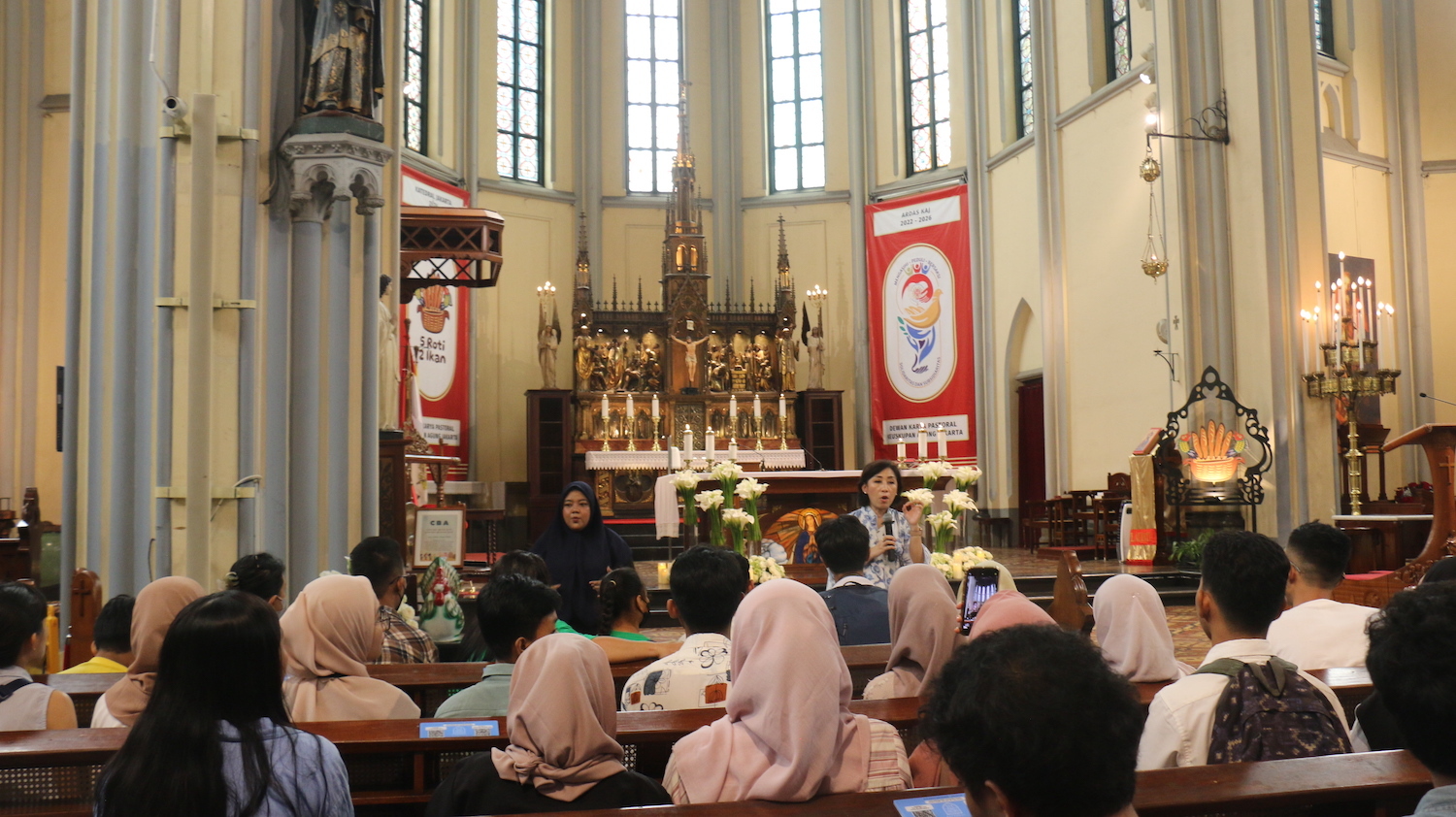Youth representatives from Kenya and Northern Ireland said community leaders, mentors, and civic organizations can provide youth with opportunities to meaningfully engage with their communities and be agents of change at a virtual forum, “Cross Cultural Youth Leadership and Engagement,” on March 31, 2022.

Panelists clockwise from top left: Samuel Budoi (moderator),Andreas Otieno, Verity Wenner, Elizabeth Murugui Kariuki, Aron Hughes, and Lauren McAreavey
“First, we need to understand that every person exists for a certain reason,” said Elizabeth Murugui Kariuki, a President’s Fellow with the Global Peace Foundation Kenya. She described how training in conflict resolution and peace had taught her the value of humanity and diversity. Education can play an important role creating a more equitable and just society, she said, adding that “peace education can make more impact on [developing] virtues and values such as respect and forgiveness.”
Verity Wenner, a Together Building a United Communities (TBUC) ambassador, described her work in Northern Ireland bringing together diverse youth in camps, workshops, and events that focus on building empathy and community and resisting violence and antisocial behaviors.
Youth and political engagement
Young people become politically active due issues impacting their communities. Many youth are inspired to bring change, and it is important for local organizations to support these efforts through education, logistical support, and resources, panelists noted.
The President Fellowship Program is a mentorship and leadership program to provide a platform for young African leaders through a series of activities to highlight accountability and integrity.
Organizations that focus on youth empowerment, engagement, and leadership capacity should strive to bring youth together in a safe space to grow, support each other, and work together to better each other’s lives.
TBUC is working in Northern Ireland to support youth in expressing their voice on issues they are passionate about and directly impact them. Aron Hughes from Co-operation Ireland and a TBUC ambassador outlined the need to empower young people to identify issues within their communities, lead subsequent campaigns, and provide the necessary political education to realize change through the political process.
Idle and unemployed youth are common targets for self-serving politicians, some panelists noted. Through education and social impact projects, they can realize their individual roles in counteracting extremism and violence.
Andreas Otieno, a President Fellowship Program ambassador, noted the importance for youth of political awareness, literacy and competence when running for government positions. Young people are often unfamiliar with the responsibilities relating to political positions or how to access opportunities. Lack of political education and the capacity of youth to express themselves appropriately in a formal environment were concerns raised by panelists.
Organizations that focus on youth empowerment, engagement, and leadership capacity should strive to bring youth together in a safe space to grow, support each other, and work together to better each other’s lives. “Empowering young people, to me, means trusting them and handing over power to them in various ways,” said Lauren McAreavey a TBUC ambassador.
The session was part of a five-part “Peacesharing Forum: Uplifting Youth Engagement for Building Peace”sponsored by the Global Peace Foundation and Co-operation Ireland and is available to view On-Demand.



